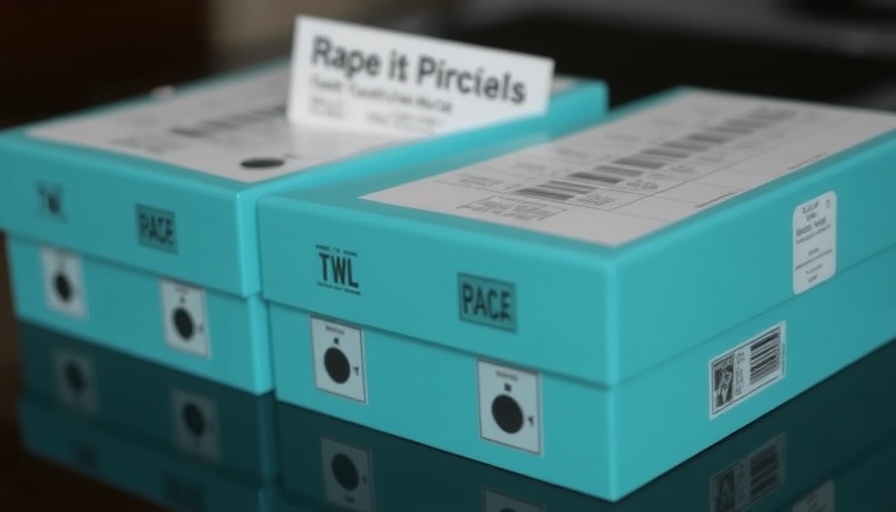
Clearing the Backlog: A Move Toward Justice
After an alarming investigation uncovered a backlog of nearly 900 unprocessed sexual assault evidence kits, the Fort Worth police department has made significant strides in addressing this grave oversight. Victims, who had been left in silence and uncertainty, are now receiving the prompt attention they deserve. For years, these kits, which hold the potential to unlock vital DNA evidence, were neglected, flouting state law that mandates processing within 90 days.
In response to public outcry, city leaders took decisive action. Fort Worth Chief of Police Neil Noakes reported that the department not only cleared the existing backlog but also implemented measures to ensure compliance moving forward. This effort involved hiring additional staff and revising internal policies to keep victims consistently informed about the progress of their cases. “We’ve completely eliminated the backlog,” Noakes assured council members. “This is something that can never be missed again.”
Understanding the Importance of Timely Processing
The implications of timely processing of rape kits extend far beyond mere compliance with state law—they are a crucial aspect of public safety and justice for victims. When evidence is not processed promptly, it delays justice and can hinder ongoing investigations. It may also lead to broader societal repercussions by perpetuating a culture where victims feel their experiences are neither valued nor validated.
Mayor Mattie Parker emphasized the need for transparent communication with victims and their families, stating, “This is definitely worth celebrating and to communicate to the victims and their families that we’re listening.” Victims need to know that their trauma is acknowledged and that steps are being taken to ensure such a situation does not repeat itself.
Addressing Gaps in the System
The surge in unprocessed kits was primarily attributed to a staffing shortage in the city’s crime lab, which had five vacant DNA analyst positions at the time of the investigation. This raises a critical question: What systemic issues led to these positions remaining unfilled? It’s a concern that echoes across many municipalities grappling with similar challenges.
As discussions on public safety continue, it is imperative to evaluate the adequacy of resources in law enforcement agencies. The pipeline from research and innovation in forensic science to practical implementation needs to be robust to prevent potential backlogs. Local agencies, such as those in Dallas, could learn from Fort Worth’s approach in addressing these issues, potentially avoiding similar situations in the future.
What Lies Ahead for Fort Worth Police?
While the recent progress marks a significant milestone, many remain cautious about the future. Latrice Godfrey, a victim whose evidence was held for months, expressed hope but also concern over the risks of falling back into old habits. “What happens when the veil goes back up?” she said. It’s a sentiment shared by many who have been impacted by this issue, as they watch carefully to see if the commitment to change remains.
The Fort Worth police department has put measures in place to guarantee that victims are informed of any possible processing delays going forward. “You shall reach out and talk to this victim to make sure they stay informed,” Noakes emphasized, indicating a commitment to a more accountable and victim-centered approach.
Repercussions Beyond Fort Worth
This situation illuminates a larger conversation about sexual assault reporting and processing nationwide. Across the United States, many cities have faced scrutiny for their handling of rape kits, with several having their own backlogs. The Fort Worth case serves as a crucial reminder of the importance of transparency, communication, and policy reform in law enforcement agencies, not only in Dallas or Texas but also across the country.
Conclusion: Bridging the Gap Between Policy and Practice
This unfolding story in Fort Worth serves as a critical turning point in how police departments may need to evolve in order to serve their communities better. Engaging the community, keeping them informed about policies, and providing resources to victims can foster trust and accountability within local law enforcement.
As these city officials strive to rebuild relationships with those they serve, it remains vital for citizens to stay informed and involved in local governance. For our part, staying tuned to developments in local politics and community news will keep Dallas residents engaged and proactive. Understanding what our city leaders are doing to ensure public safety is essential for fostering a proactive environment in Dallas.
Call to Action: Stay informed about local politics and community updates by subscribing to Dallas-area news outlets to ensure you’re aware of how these issues evolve and how they may impact you.
 Add Element
Add Element  Add Row
Add Row 



 Add Row
Add Row  Add
Add 


Write A Comment